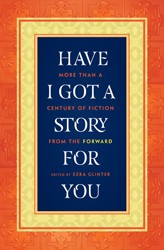The six stories in this collection explore the greenhorn experience in the context of Jewish immigration to the United States, particularly to New York City, from the turn of the twentieth century through the early years of the Great Depression. Slotkin has based his tales on interviews he held with family members who came to the United States from Russia and Poland between 1900 and 1921.
Through his fictional retellings, Slotkin demonstrates how historical markers shaped and defined the particular experience of immigrants. In 1905, Jews escaped the latest outbursts of violent antisemitism in Russia and Poland, and made their way to what many believed would be the promised land. The end of World War II brought awareness of the Holocaust, which many new immigrants had managed to escape. The founding of the modern Jewish State was another milestone: a pinnacle of Jewish pride.
Slotkin’s collection also explores family dynamics, and the generational gaps that complicate them. While youngsters often adapt and assimilate with ease in these stories, older immigrants are more likely to have a difficult time, some never finding true comfort in the nation or neighborhood in which they now live — they never stop being greenhorns. One man, back in “the other side” a prominent wheat broker, cannot reconstruct his success in his new environment: he has lost too much status, too much context for the meaning of his life. He becomes a recluse. Others find ways to fit in, grasping when possible the helping hand of a cousin already established or a friendly neighbor.
Some find life in New York just as demeaning as a life threatened by Cossacks. Many children and grandchildren make their way and gain the CUNY seal of approval. One couple rises from doing sweatshop piecework to business prominence; Herschel’s Fine Clothier becomes a national brand with stores in major cities. Other “off-the-boat” Jewish families find ruin.
Each story is a gem in its rendering of greenhorn conversation and sensibilities as plumbed by a dutiful narrator, who is always depicted as a sophisticate among those still finding or freshly remembering their way. The language, seasoned with Yiddish, carries the rise and fall of questions asked and not answered. So who knew? someone might say. Joking is important, and Slotkin gives us just enough of it, especially in “Children, Drunks, and the United States of America.” The most moving story in the collection, “Uncle Max and Cousin Yossi,” is a fable-like tale about separated brothers, and how much of life is up to chance.
Greenhorns is a small monument to an epoch not to be forgotten.
Philip K. Jason is professor emeritus of English at the United States Naval Academy. A former editor of Poet Lore, he is the author or editor of twenty books, including Acts and Shadows: The Vietnam War in American Literary Culture and Don’t Wave Goodbye: The Children’s Flight from Nazi Persecution to American Freedom.




